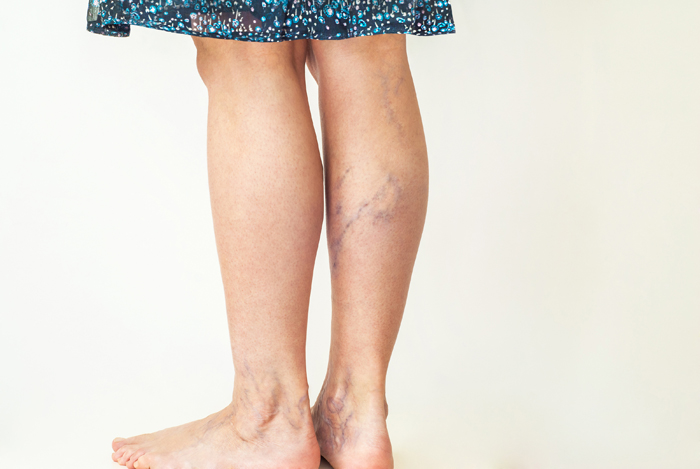Vascular Surgery
Vascular surgery refers to the management of conditions that affect blood circulation. The circulation can be affected by diseases of the veins, arteries, and lymphatic vessels. Vascular surgeons treat every part of the vascular system, including the brain and the heart.
What is vascular surgery?
The veins and the arteries do the essential job of transporting blood through the body. A plaque build-up or blood spot at any part of these arteries and veins, and it completely derails the entire circulatory system. This is when vascular surgery in Kondapur can help. One of the most crucial breakthroughs in vascular surgery has been the introduction of minimally invasive surgery. It is an operation through a small incision using tiny instruments.

Who qualifies for vascular surgery?
If a vascular disease is diagnosed early on, some people might not need vascular surgery in Hyderabad. However, if the condition is acute, the patient might need surgery. Some of these conditions can become life-threatening.
Some of the vascular diseases that might require surgery are:
- Acute venous thrombosis
- Carotid artery disease
- Aortic aneurysm
- Diseases of the aorta
- Limb salvage and diabetic vascular disease
- Critical limb ischemia
To know for sure if you need surgery or not,
Request an appointment at Apollo Spectra Hospitals, Kondapur, Hyderabad.
Call 18605002244 to book an appointment.
Why is vascular surgery performed?
Vascular surgery is performed to treat various disorders and injuries in the veins, arteries, and lymph vessels. The surgery procedures are generally performed on the arteries, veins, and aorta in the abdomen, neck, legs, arms, and pelvis, excluding the brain and the heart.
You might need the surgery if your condition can’t be treated with lifestyle or medication changes. Some of the conditions where vascular surgery might be necessary are:
- Blood Clots: Pulmonary embolism and deep vein thrombosis might require surgery if medicines have failed to dissolve the clots.
- Aneurysm: Based on the size of the aneurysm, vascular surgery might be appropriate.
- Carotid Artery Disease: This is a leading cause of stroke. So, surgery is performed to remove the plaque build-up. It is an effective treatment for advanced conditions.
- Renal Artery Occlusive Disease: Angioplasty might be an option. However, a later stage of renal artery stenosis might need an open artery bypass surgery.
- Peripheral Artery Disease: Open vascular surgery might be required for the advanced disease.
- Vein Disease: Different vein surgeries might be available for treating chronic venous insufficiency, painful varicose veins, and other severe issues.
- Trauma Surgery: This is to stop internal bleeding and repair the damage caused to the blood vessel.
What are the benefits?
There are many benefits of vascular surgery. Vascular surgery doctors in Kondapur treat major conditions through surgery. These conditions include:
- Carotid artery disease
- Abdominal aortic aneurysm
- Venous disease
- Peripheral arterial disease
- Dialysis
What are the complications?
All types of surgery come with potential complications and risks. The surgical complications include:
- Bleeding
- Allergic or some other reactions to anesthesia
- Arrhythmia or heart attack
- A blood clot can lead to loss of blood flow to the feet or legs. It can travel to your lungs and might lead to pulmonary embolism.
- Injury to the kidney, spinal cord or bowel during the operation
- Infection of the graft
- Lung issues
There are ways to reduce the potential complications. For instance, if you are allergic to anesthetics or contrast dyes, you can alert your healthcare provider about it. Make sure that you notify the doctor immediately if there is any concern, such as infection, bleeding, or an increase in pain.
Bruising is pretty standard in the first few days, but you will improve gradually. Complete healing after the surgery might take about eight weeks.
After the surgery, you should not sit or stand for too long in the first 30-60 days. Keep the legs elevated to facilitate healing. It will give your vasculature time to reestablish its blood flow.
Usually, the surgery is going to take 3-4 hours. Incisions are made in the groin region to perform the surgery.
Lifestyle changes, such as quitting smoking, doing more exercise, and losing weight, can help in improving vascular health.
Our Doctors
DR. SANJEEV RAO K
MBBS,DRNB (Vascular)...
| Experience | : | 13 Years Experience |
|---|---|---|
| Speciality | : | Vascular Surgery... | Location | : | Kondapur |
| Timings | : | Mon- Sat: 5:00 PM to... |
Our Top Specialities
NOTICE BOARD
CONTACT US
CONTACT US
 Book Appointment
Book Appointment



.svg)
.svg)
.svg)
.svg)








